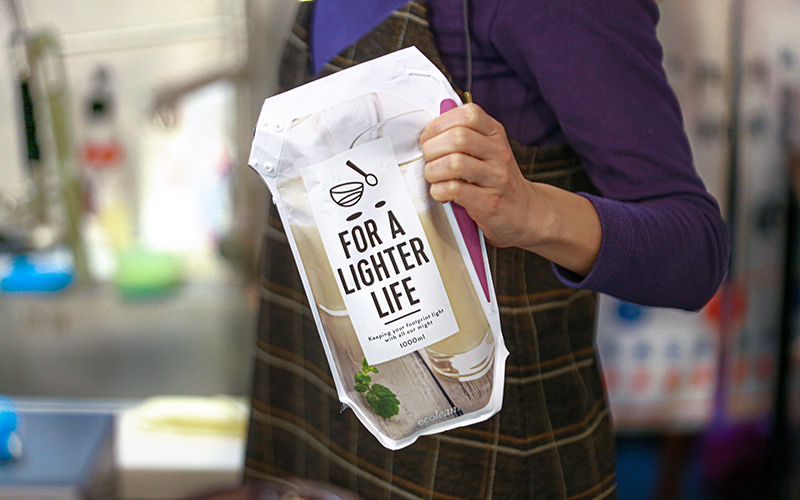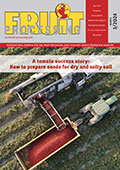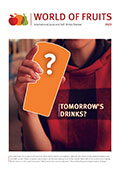Ecolean packages recognised for their recyclability in South Korea
South Korea’s Ministry of Environment has recognised the recyclability of Ecolean’s aseptic packages, which rank higher than most other food and drink packaging solutions in the country’s new recyclability grading system.

South Korea’s Ministry of Environment has recognised the recyclability of Ecolean’s aseptic packages, which rank higher than most other food and drink packaging solutions in the country’s new recyclability grading system.
The absence of aluminium, which is often used for aseptic cartons and other liquid food packaging, means Ecolean’s portfolio ranked ‘good’ in a four-grade scale to determine how easily packages can be recycled.
The announcement follows South Korea’s introduction last December of the Act on the Promotion of Saving and Recycling of Resources, requiring food and beverage packaging to contain labels that show a material’s recyclability grade, thereby encouraging resource efficiency and the use of easy-to-recycle packages.
A nine-month grace period for businesses to comply with the new regulations ends this September.
“The South Korean Ministry of Environment’s grade of the Ecolean packages’ recyclability only confirms that we are on the right path – developing and manufacturing unique packaging solutions that make a difference in the long run,” said Paul Mellbin, Senior Advisor, Ambient Technology at Ecolean.
“As a global producer of lightweight packaging, Ecolean makes it easier for consumers, liquid food brands as well as the environment.”
Aluminium-free packaging
Ecolean’s lightweight portfolio consists of aseptic, flexible packaging made from polyolefins and up to 35 % chalk, which gives the packages their strength, stiffness and smooth surface.
The printed, shaped and fully sealed packages are sterilised using electron beam treatment before shipping to the filling machine at the customer’s site. Prior to opening, filling and sealing in the filling machines, the outer surfaces of the packages are desterilised using a system of 1 % peroxide spray and UV light.
“The fact that our type of sterilisation process is separated from the filling machines and performed at the Ecolean manufacturing plants is quite unique in the industry and something we are very proud of. It makes the process easier for our customers, and that as well as having sustainability in mind when designing our lightweight packaging solutions is key. The confirmed recyclability of our packages in Korea just further adds to the fact that our unique approach is crucial for the beverage, dairy and liquid food industry” Paul Mellbin said.
Ecolean increased its footprint in South Korea last year with Yakult selecting its Air Aseptic range for two new launches in the country.
“The Ecolean package is the perfect fit for us, since it is lightweight and flexible, yet extremely durable. We have already seen a huge interest from consumers,” Jeonghyeon Hong, Marketing Manager, Yakult Korea, said.









